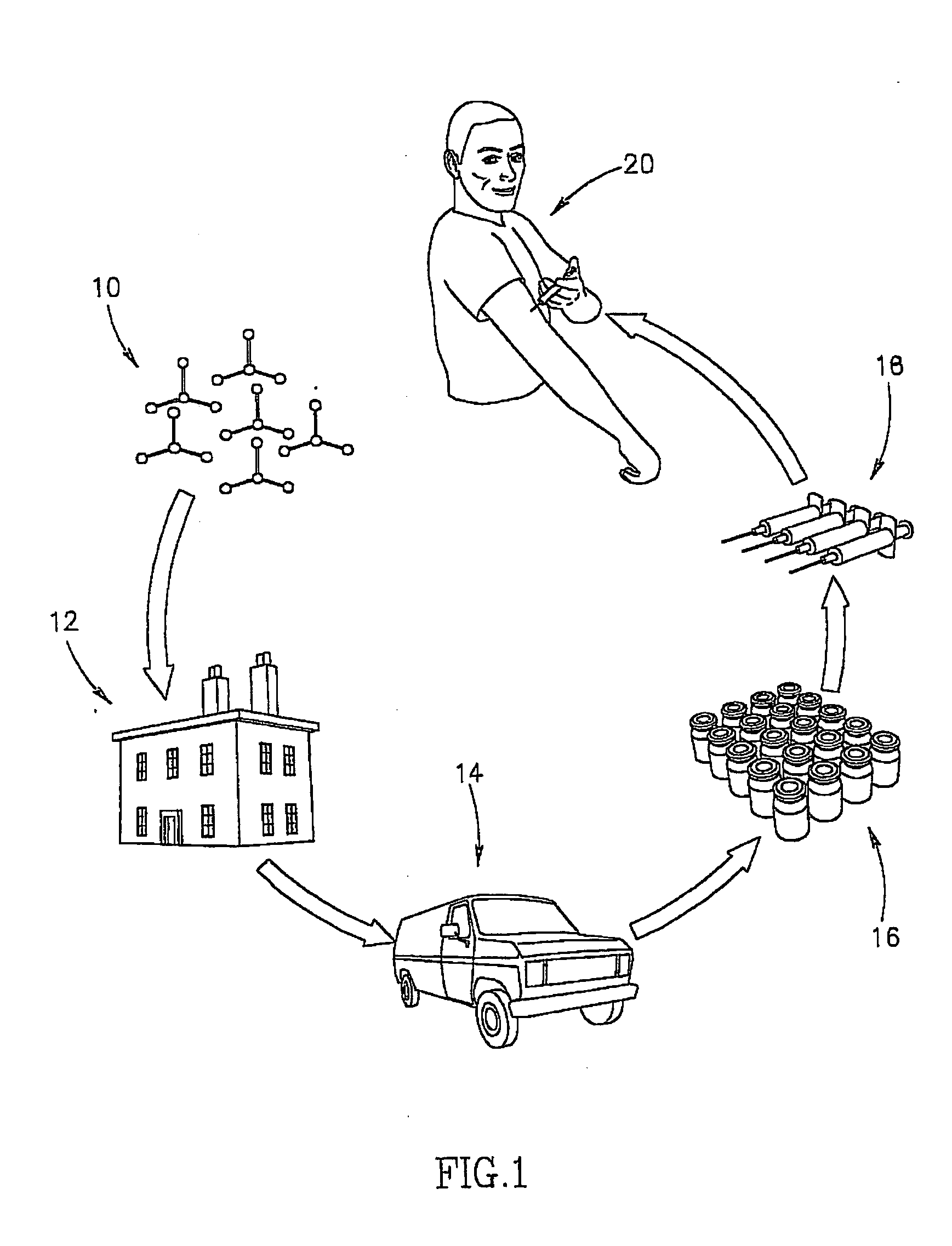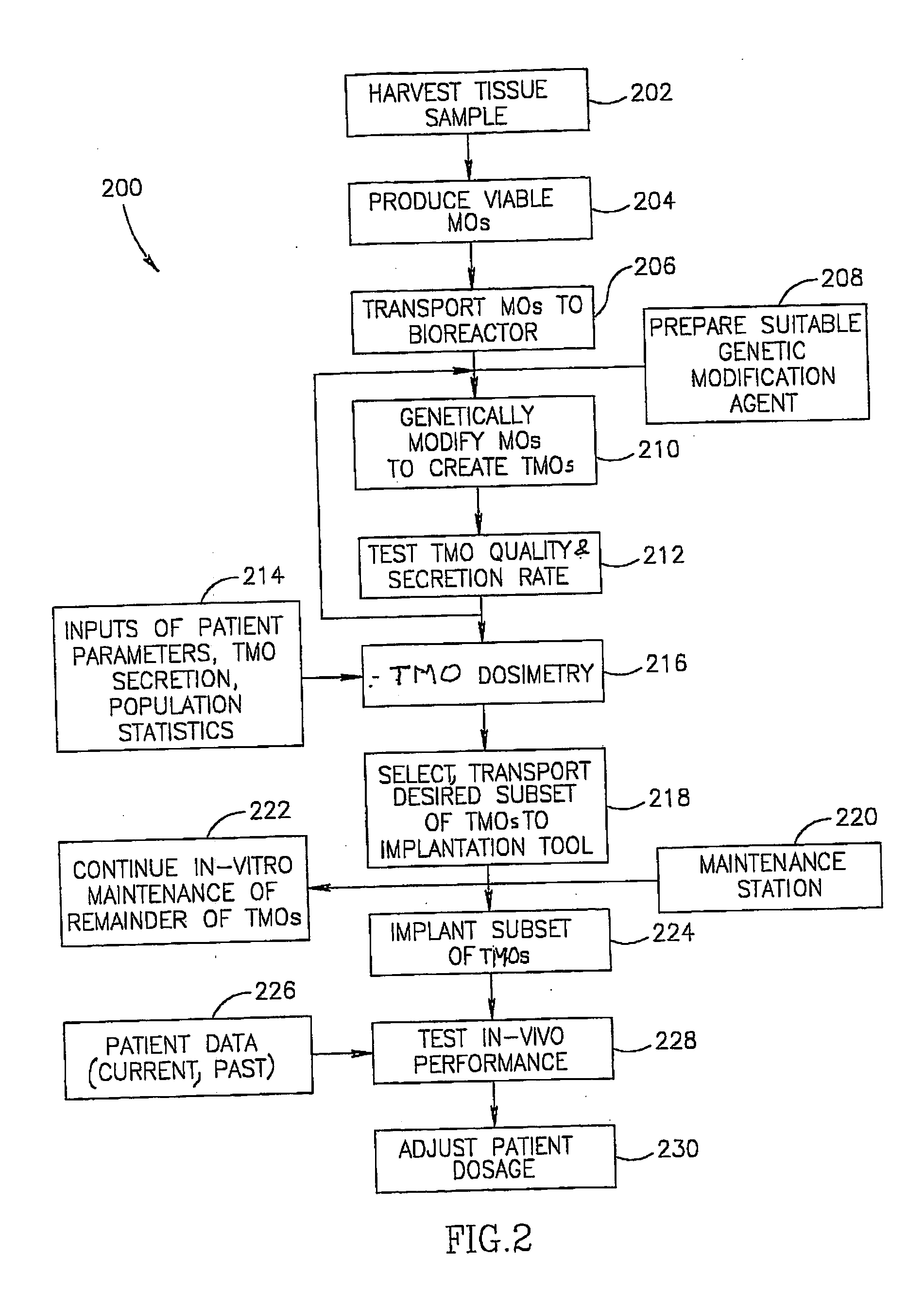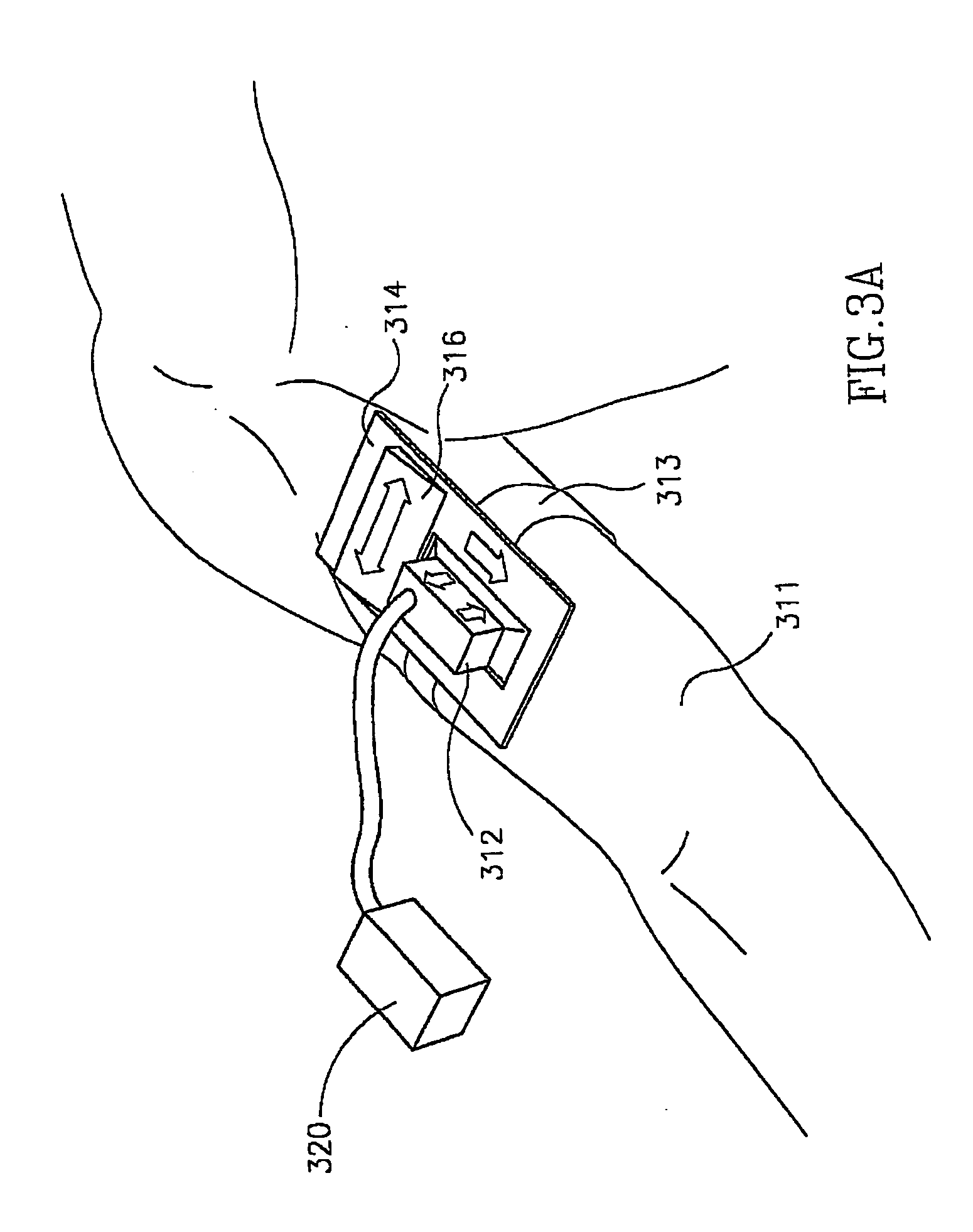Closed automated system for tissue based therapy
- Summary
- Abstract
- Description
- Claims
- Application Information
AI Technical Summary
Benefits of technology
Problems solved by technology
Method used
Image
Examples
example 1
Human Skin TMOs, Expressing Mouse Interferon Alpha (mIFNα?, Implanted in SCID Mice.
[0269] Human skin micro-organs were prepared from fresh skin tissue samples, obtained from tummy-tuck surgery procedure. A section of 1.4-1.5 mm skin thickness (depth) was removed and cleaned using hypochloride solution (10% Milton solution). A cleaned skin sample was sectioned, using a tissue chopper (TC-2 chopper, Sorval, Du-pont instruments) into 450 micrometer sections (width) under sterile conditions. The resulting micro-organs were placed, one per well, in a 48-well micro-plate containing 400 μl per well of DMEM (Biological Industries - Beit Haemek) in the absence of serum, under 5% CO2- at 37° C. for 24 hours. Thereafter, each well underwent a transduction procedure in order to generate a therapeutic micro-organ (TMO) using an adeno viral vector (1×109 IP / ml) carrying the gene for mouse interferon alpha (Adeno-mIFNα. Thereafter, the TMOs were again maintained in 400 μl per well of DMEM. The m...
example 2
Human Skin TMOs, Expressing Mouse Interferon Alpha (mIFNα)?, Show High Reproducibility From Patient to Patient in Protein Output
[0271] TMOs were prepared and transduced with Ad5 / CMV-mIFNα vector using a standard (but non-optimized) protocol, as describe above, including an adeno viral titer of 1×109 IP / ml.
[0272] Transduction was performed 24 hours post micro-organ preparation. Medium was assayed for in-vitro mIFNα secretion on day 6 following transduction by using a specific ELISA kit (Cat. # CK2010-1, Cell Science Inc.). FIG. 15 shows that the degree of variability between skin samples from different patients, processed at different times, is remarkably small. This low variation between human patients indicates that sufficiently comparable levels of protein secretion can be obtained from a standard sized skin sample taken from patients in practical use for dosing and filtrating the amount of TMOs to be implanted in order to achieve the desired therapeutic effect.
example 3
Human Skin Linear TMOs, Expressing Human Erythropoietin (hEPO), Implanted in SCID Mice, Including Re Implantation.
[0273] Linear (20 mm long and 0.4 micrometer wide) human skin micro-organs were prepared from fresh skin tissue samples obtained from a tummy-tuck surgery procedure. Tissue samples of 0.85-1.1 mm split skin thickness (depth) were removed and cleaned using DMEM containing glutamine and Pen.-Strep in Petri dishes (90 mm).
[0274] In order to generate the linear micro-organs, the above tissue samples were cut by a press device using a blade structure as described above, into the desired dimensions: 20 mm×400 micrometers. The resulting linear micro-organs were placed, one per well, in a 24-well micro-plate containing 500 μl per well of DMEM (Biological Industries—Beit Haemek) in the absence of serum under 5% CO2 at 37° C. for 24 hours. Each well underwent a transduction procedure in order to generate a therapeutic micro-organ (TMO) using an adeno viral vector (1×1010IP / ml) ...
PUM
 Login to View More
Login to View More Abstract
Description
Claims
Application Information
 Login to View More
Login to View More - R&D
- Intellectual Property
- Life Sciences
- Materials
- Tech Scout
- Unparalleled Data Quality
- Higher Quality Content
- 60% Fewer Hallucinations
Browse by: Latest US Patents, China's latest patents, Technical Efficacy Thesaurus, Application Domain, Technology Topic, Popular Technical Reports.
© 2025 PatSnap. All rights reserved.Legal|Privacy policy|Modern Slavery Act Transparency Statement|Sitemap|About US| Contact US: help@patsnap.com



